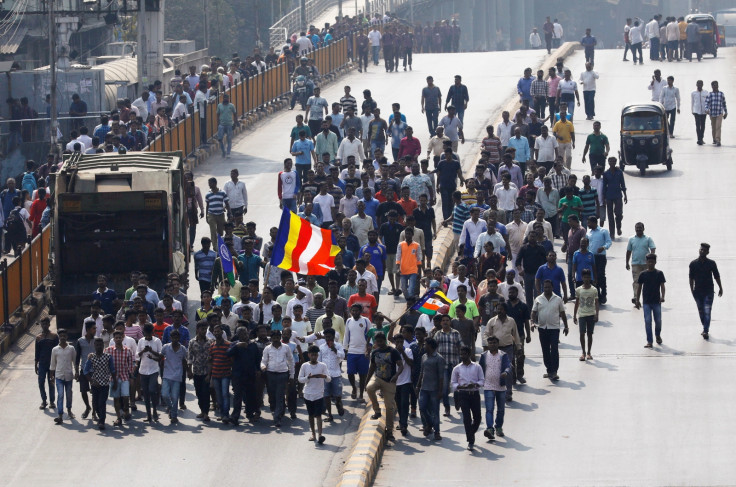Why Dalits are protesting in massive numbers in India's financial capital Mumbai
Dalits held protests in multiple cities after an earlier anniversary rally ended in a death.

The Indian city of Mumbai is tense after Dalits – considered the lowest caste in the country's archaic hierarchy by some sections of society – called for massive protests as demonstrations kept swelling on Wednesday, 3 January, the third day of unrest.
Dalits, a severely oppressed community in India who are considered by some as 'untouchables', have faced persecution as well as economic, political and social marginalisation for several decades.
With transportation badly affected and protests spilling over to other parts in the state of Maharashtra, why exactly are Dalits protesting?
Tensions began on Monday, 1 January, when thousands of Dalits gathered in the village of Bhima Koregaon in Maharashtra to mark the 200th anniversary of a key battle, which had seen Dalits fight against the high-ranking rulers of that time. Some Dalit leaders believe the community's contribution helped the British win the battle in 1818 against the Peshwas. However, historians are still divided over the exact events.
Violent clashes erupted during the Bhima Koregaon anniversary rallies on the first day of 2018 when suspected right-wing protesters interfered. This resulted in the death of 28-year-old Rahul Phatangale, who suffered head injuries after stones were hurled at him.
Speaking after the incident, Sharad Pawar – a key politician in the state of Maharashtra – said, "Why did the administration not take adequate precautions for this event which has been celebrated peacefully for 200 years? Due to its lapses, there was confusion and rumour-mongering, resulting in the violence."
Phatangale's death has infuriated the Dalit community, resulting in calls for state-wide strikes and protests over the last few days. As a result, bus and train transportation in Mumbai have been affected.
As a precautionary measure, the Mumbai police has ordered people not to gather in groups and more than 100 activists, mostly Dalit leaders, have been detained.
Large rallies with significant numbers have been reported in major cities like Nagpur, Pune and Baramati. Schools and colleges have also been shut down. Heavy police presence has been reported in these cities to avert riot-like situations.
International air travel remains unaffected so far, although some crew members of airlines were delayed by the ongoing protests.
"Atrocities are being inflicted on Dalits since the last three-and-a-half years since BJP came to power in the centre," said senior opposition politician Ghulam Nabi Azad.
Another top political figure, Mallikarjun Kharge, said, "Why is Prime Minister Narendra Modi silent on the issue? He always maintains silence on issues relating to Dalits.
"A Supreme Court judge should be appointed for an inquiry into the Bhima Koregaon violence. PM should also give a statement. He can't stay mum," insisted Kharge.




















